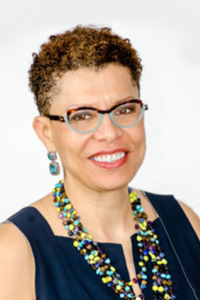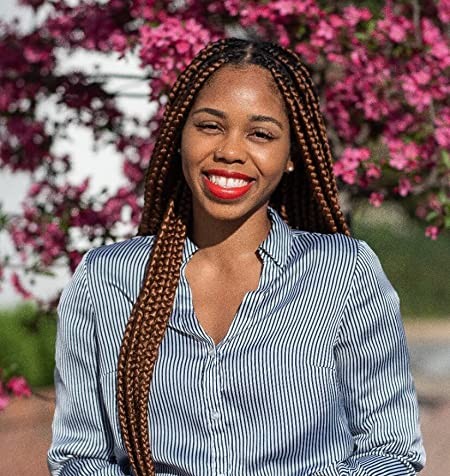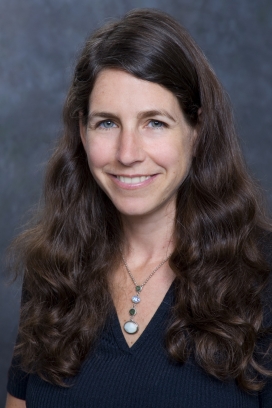Date: Wednesday, August 17, 2022, 4:00 – 5:00 PM ET
Webinar Description: This webinar will feature 4 authors presenting their cutting-edge, thought-provoking new books on constitutional law and inequality.
Learning Objectives:
 Sheryll Cashin, J.D., Carmack Waterhouse Professor of Law, Civil Rights and Social Justice, Georgetown Law
Sheryll Cashin, J.D., Carmack Waterhouse Professor of Law, Civil Rights and Social Justice, Georgetown Law
Sheryll Cashin is an author and the Carmack Waterhouse Professor of Law, Civil Rights and Social Justice at Georgetown University. Currently she teaches Constitutional Law, Race and American Law, and a writing seminar about American segregation, education and opportunity.
Her new book — White Space, Black ‘Hood: Opportunity Hoarding and Segregation in the Age of Inequality (forthcoming, Beacon 2021) — is about the role of residential segregation in producing racial inequality. Her book, Loving: Interracial Intimacy in America and the Threat to White Supremacy (Beacon, 2017), explores the history and future of interracial intimacy, how white supremacy was constructed and how “culturally dexterous” allies undermine it. Her book, Place Not Race (Beacon, 2014), recommended radical reforms of selective college admissions in order to promote robust diversity; it was nominated for an NAACP Image Award for Outstanding Non-Fiction in 2015. Her book, The Failures of Integration (PublicAffairs, 2004) explored the persistence and consequences of race and class segregation. It was an Editors’ Choice in the New York Times Book Review. Cashin is also a three-time nominee for the Hurston/Wright Legacy Award for non-fiction (2005, 2009, and 2018). She has published widely in academic journals and written commentaries for Politico Magazine, the New York Times, Los Angeles Times, Washington Post, Salon, The Root, and other media.
Professor Cashin serves as board member of the Poverty and Race Research Action Council. She is former Vice Chair of the board of Building One America, a network of local, multiracial coalitions that promote social inclusion, racial justice and sustainable economic opportunity, especially in distressed places. She served for a decade on the trustee boards of Vanderbilt University, The Duke Ellington School of the Arts, and the National Portrait Gallery. She worked in the Clinton White House as an advisor on urban and economic policy, particularly concerning community development in inner-city neighborhoods.
Cashin is frequently asked to speak to academic and policy audiences as well as at book events for people who engage with her as an author. She has delivered keynote or endowed lectures at twenty universities. For her two decades of writing and advocacy for residential and school integration, the Fair Housing Justice Center honored her with the 2017 Acting for Justice Award for Outstanding Contributions to Civil Rights.
Professor Cashin was law clerk to U.S. Supreme Court Justice Thurgood Marshall and Judge Abner Mikva of the U.S. Court of Appeals for the District of Columbia Circuit. She graduated summa cum laude from Vanderbilt University with a bachelor’s degree in electrical engineering. As a Marshall Scholar, she received a masters in English Law with honors from Oxford University and received a J.D. with honors from Harvard Law School, where she was a member of the Harvard Law Review. Cashin was born and raised in Huntsville, Alabama, where her parents were political activists. She lives in Washington with her husband and twin boys.
 Kristin Henning, J.D., LL.M, The Blume Professor of Law; Director of the Juvenile Justice Clinic and Initiative, Georgetown Law
Kristin Henning, J.D., LL.M, The Blume Professor of Law; Director of the Juvenile Justice Clinic and Initiative, Georgetown Law
Kristin Henning is the Blume Professor of Law and Director of the Juvenile Justice Clinic and Initiative at Georgetown Law, where she supervises law students and represents youth accused of delinquency in the D.C. Superior Court. Professor Henning served as the Law School’s Associate Dean for Clinics and Experiential Learning from 2017-2020.
Professor Henning first joined the faculty in 1995 as a Stuart-Stiller Fellow in the Criminal and Juvenile Justice Clinics. After her fellowship, Professor Henning joined the staff of the Public Defender Service for the District of Columbia where she continued to represent clients and helped organize a Juvenile Unit designed to meet the multi-disciplinary needs of children in the juvenile legal system. Professor Henning served as Lead Attorney for the Juvenile Unit from 1998 until she left the Public Defender Service to return to the Law Center in 2001.
Professor Henning writes extensively about race, adolescence, and policing and has a book forthcoming with Penguin Random House in 2021, THE RAGE OF INNOCENCE: HOW AMERICA CRIMINALIZES BLACK YOUTH . Her previous work appears in journals and books such as POLICING THE BLACK MAN: ARREST, PROSECUTION AND IMPRISONMENT (2017, edited by Angela J. Davis) and PUNISHMENT IN POPULAR CULTURE (2015, edited by Charles J. Ogletree, Jr. and Austin Sarat). Race features prominently in her articles such as The Reasonable Black Child: Race, Adolescence and the Fourth Amendment, 67 AM. U. L. REV. 1513 (2018), Race, Paternalism and the Right to Counsel, 54 AMER. CRIM. L. REV. 649 (2017), and Criminalizing Normal Adolescent Behavior in Communities of Color: The Role of Prosecutors in Juvenile Justice Reform, 98 CORNELL L. REV. 383 (2013). Professor Henning is also an editor and co-author of an anthology RIGHTS, RACE, AND REFORM: FIFTY YEARS OF CHILD ADVOCACY IN THE JUVENILE JUSTICE SYSTEM (2018).
Professor Henning has trained state actors across the country on the nature and scope of racial bias and how it operates in the juvenile and criminal legal systems. Her workshops help stakeholders recognize their own biases and develop strategies to counter it and equip defenders to challenge racial injustice in their individual case advocacy and broader systemic reform efforts. Professor Henning also worked closely with the McArthur Foundation’s Juvenile Indigent Defense Action Network to develop a 41-volume Juvenile Training Immersion Program (JTIP), a national training curriculum for juvenile defenders. She now co-hosts, with the National Juvenile Defender Center (NJDC), an annual week-long JTIP summer academy for defenders. In 2019, she partnered with NJDC to launch Racial Justice for Youth: A Toolkit for Defenders, and again in 2020 to launch the Ambassadors for Racial Justice program, a year-long program for defenders committed to challenging racial inequities in the juvenile legal system. Henning serves on the Board of Directors for the Center for Children’s Law and Policy and is the Director of the Mid-Atlantic Juvenile Defender Center. She has served as an expert consultant on juvenile justice to a number of state and federal agencies, including the USDOJ’s Civil Rights Division, and was the Reporter for the ABA Task Force on Dual Jurisdiction Youth. She is also a lead contributor to the Juvenile Law and Practice chapter of the District of Columbia Bar Practice Manual and has served as an investigator in eight state assessments of the access to counsel and quality of representation for accused youth.
Professor Henning is the recipient of several honors, including the Juvenile Law Center’s Leadership Prize, the Robert E. Shepherd, Jr. Award for Excellence in Juvenile Defense from NJDC, the Shanara Gilbert Award from the American Association of Law Schools for her commitment to justice on behalf of children, selection to the American Law Institute (ALI), and appointment as an Adviser to ALI’s Restatement on Children and the Law project. Henning received her B.A. from Duke University, a J.D. from Yale Law School, and an LL.M. from Georgetown Law.
 Derecka Purnell, J.D., Scholar-in-Residence, IJS, Columbia Law School
Derecka Purnell, J.D., Scholar-in-Residence, IJS, Columbia Law School
Derecka Purnell is a lawyer, writer, organizer, and author of forthcoming Becoming Abolitionists: Police, Protests, and the Pursuit of Freedom. She works to end police and prison violence by providing legal assistance, research, and trainings in community based organizations through an abolitionist framework.
As a Skadden Fellow, she helped to build the Justice Project at Advancement Project’s National Office which focused on consent decrees, police and prosecutor accountability, and jail closures, providing community training, political education and legal representation to organizers. Her advocacy efforts led to the dismissal of over 3,000 cases based on unconstitutional policing practices. Additionally, she supports several campaigns and grassroots organizations around the criminal legal system, electoral justice, and community investment, including Action St. Louis, Dream Defenders, Communities Against Police Crimes and Repression, the Ferguson Collaborative, and the Movement for Black Lives. Derecka also organized the founding steering committee for Law for Black Lives, a growing network of 5,000 law students, lawyers, and legal workers to support social movements.
In the wake of the coronavirus pandemic, Derecka co-created the COVID19 Policing Project at the Community Resource Hub for Safety Accountability. The project tracks police arrests, harassment, citations and other enforcement through public health orders related to the pandemic.
Derecka received her JD from Harvard Law School, her BA from the University of Missouri- Kansas City, and studied public policy and economics at the University of California- Berkeley as a Public Policy and International Affairs Law Fellow. Her writing has been published in The New York Times, The Atlantic, The Guardian, Cosmopolitan, Harper’s Bazaar, Teen Vogue, The Appeal, Truthout, Slate, Boston Review, Huffington Post, Vox, and In These Times. She’s been on NPR, Democracy Now!, Slate’s What Next, and MSNBC, and is the former Editor-in-Chief of the Harvard Journal of African American Public Policy. Derecka has lectured, studied, and strategized around social movements across the United States, The Netherlands, Belgium, South Africa, the United Kingdom, and Australia.
She is from St. Louis and lives in D.C.
 Dorothy Roberts, J.D., George A. Weiss University Professor of Law and Sociology and the Raymond Pace and Sadie Tanner Mossell Alexander Professor of Civil Rights, University of Pennsylvania Carey Law School
Dorothy Roberts, J.D., George A. Weiss University Professor of Law and Sociology and the Raymond Pace and Sadie Tanner Mossell Alexander Professor of Civil Rights, University of Pennsylvania Carey Law School
Dorothy Roberts, an acclaimed scholar of race, gender and the law, joined the University of Pennsylvania as its 14th Penn Integrates Knowledge Professor with joint appointments in the Departments of Africana Studies and Sociology and the Law School where she holds the inaugural Raymond Pace and Sadie Tanner Mossell Alexander chair. She is also founding director of the Penn Program on Race, Science & Society in the Center for Africana Studies.
Her path-breaking work in law and public policy focuses on urgent social justice issues in policing, family regulation, science, medicine, and bioethics. Her major books include Fatal Invention: How Science, Politics, and Big Business Re-create Race in the Twenty-first Century (New Press, 2011); Shattered Bonds: The Color of Child Welfare (Basic Books, 2002), and Killing the Black Body: Race, Reproduction, and the Meaning of Liberty (Pantheon, 1997). She is the author of more than 100 scholarly articles and book chapters, as well as a co-editor of six books on such topics as constitutional law and women and the law.
Her work has been supported by the American Council of Learned Societies, National Science Foundation, Robert Wood Johnson Foundation, Harvard Program on Ethics & the Professions, and Stanford Center for the Comparative Studies in Race & Ethnicity. Recent recognitions of her scholarship and public service include 2019 Rutgers University- Newark Honorary Doctor of Laws degree, 2017 election to the National Academy of Medicine, 2016 Society of Family Planning Lifetime Achievement Award, 2016 Tanner Lectures on Human Values, 2015 American Psychiatric Association Solomon Carter Fuller Award.
 Andrea Freeman, J.D., Professor of Law; Carlsmith Ball Faculty Scholar; and Fulbright King’s College London Research Scholar 2020-21, University of Hawai‘i at Mānoa William S. Richardson School of Law
Andrea Freeman, J.D., Professor of Law; Carlsmith Ball Faculty Scholar; and Fulbright King’s College London Research Scholar 2020-21, University of Hawai‘i at Mānoa William S. Richardson School of Law
Professor Freeman writes and researches at the intersection of critical race theory and food policy, health, and consumer credit. Much of her work explores her pioneering theory of food oppression, which examines how facially neutral food-related law and policy, influenced by corporate interests, disproportionately harm marginalized communities. She is the author of Skimmed: Breastfeeding, Race, and Injustice (Stanford University Press 2019) and Ruin Their Crops on the Ground (forthcoming from Metropolitan in 2023) and the recipient of the 2020-21 Fulbright King’s College London US Scholar Award to study food inequality in the UK.
Professor Freeman teaches Constitutional Law, Federal Courts, Race and Law, Food Law and Policy, and Comparative Social Justice and Constitutional Law. In Spring 2017, she visited at UC Berkeley School of Law. In Summer 2018, she was the Distinguished Scholar of Sustainable Agriculture and Food Systems at Vermont Law School. In 2018-19, she visited at the University of Denver Sturm College of Law. Before joining the faculty at Richardson in Fall 2013, she taught at Santa Clara University School of Law, University of San Francisco School of Law, and California Western School of Law.
An active community member, Professor Freeman serves on the Litigation Committee of the ACLU Hawai’i chapter. She volunteers with the Kokua Hawaii Foundation teaching Aina in the Schools. In 2015, she received the Community Faculty of the Year award from Richardson’s Advocates for Public Interest Law. Professor Freeman is the Chair of the AALS Constitutional Law section in 2022-23 and Past Chair of the Executive Committee of the AALS Section on Agriculture and Food Law. She is co-chair of the Law and Society Collaborative Research Network for Critical Race and the Law and a Founding Member of the Academy of Food Law and Policy.
After graduating from U.C. Berkeley School of Law, she clerked for Judge Jon O. Newman of the U.S. Court of Appeals for the Second Circuit and former chief Judge José A. Fusté of the U.S. District Court for the District of Puerto Rico. Before law school, she worked in Toronto as a counselor for women and children who experienced domestic violence and in New York as a production manager in the independent film industry.